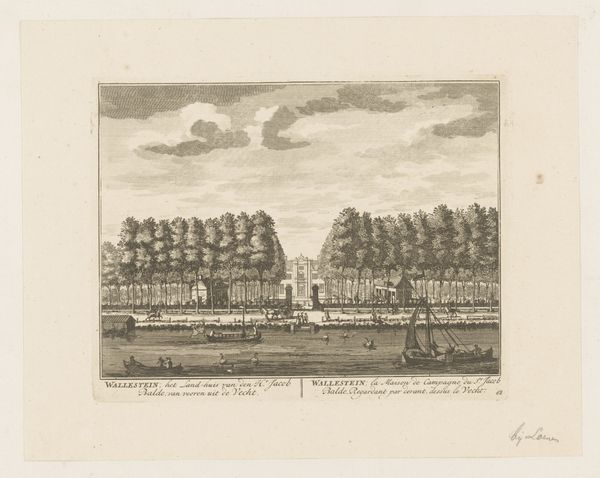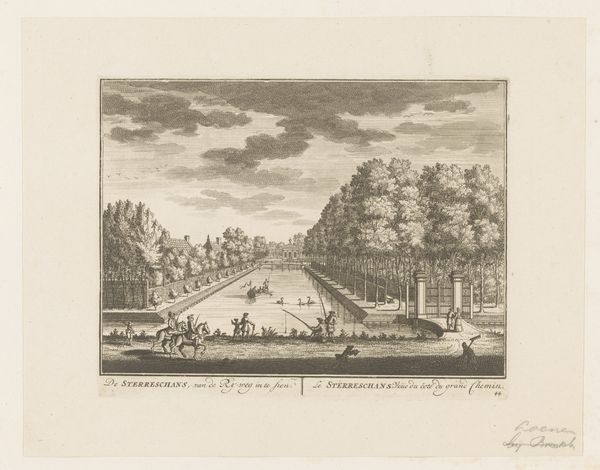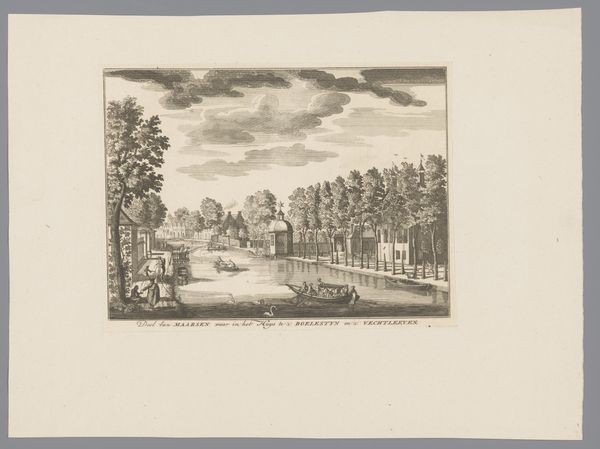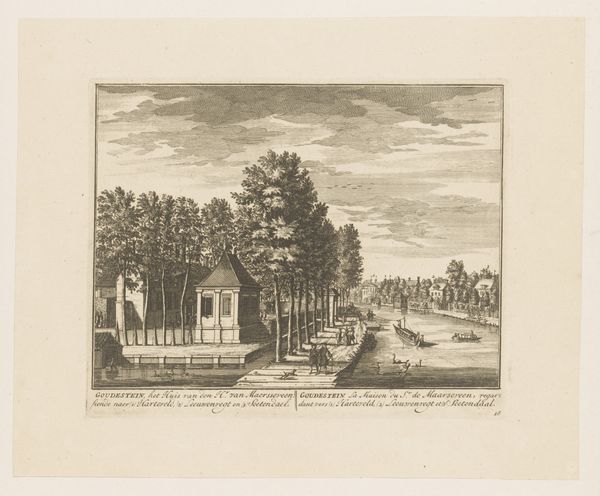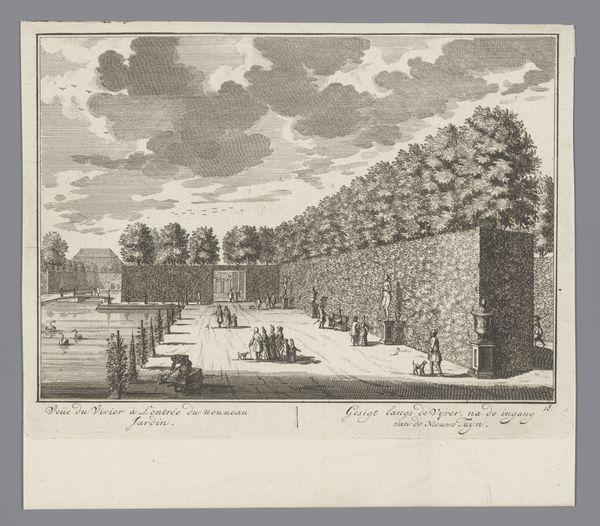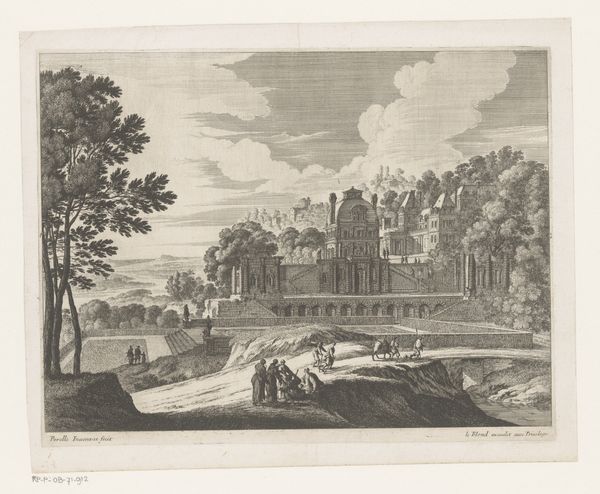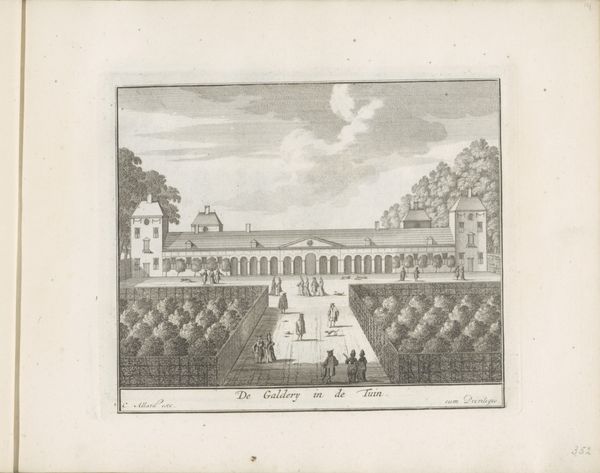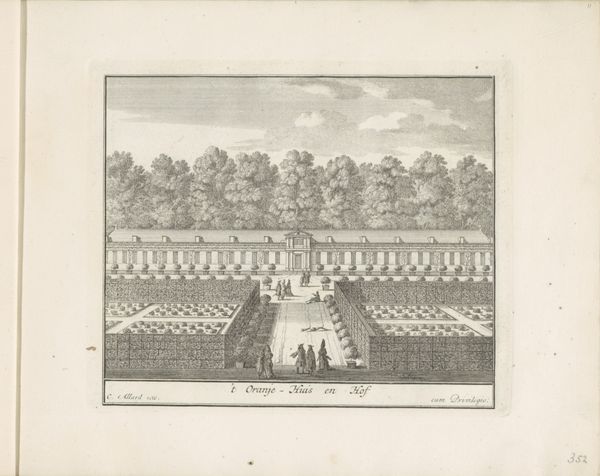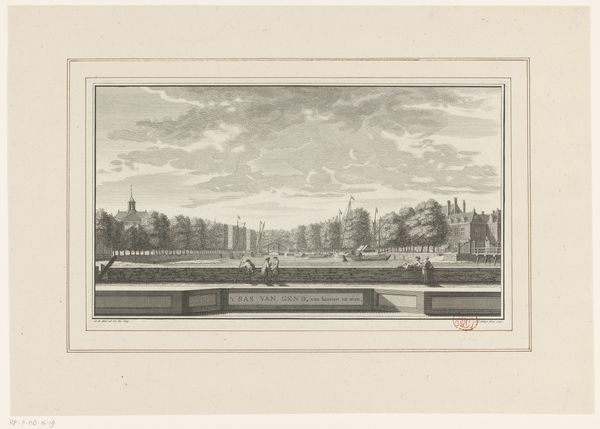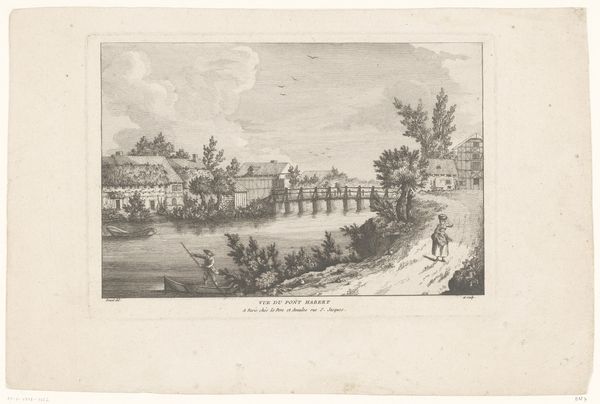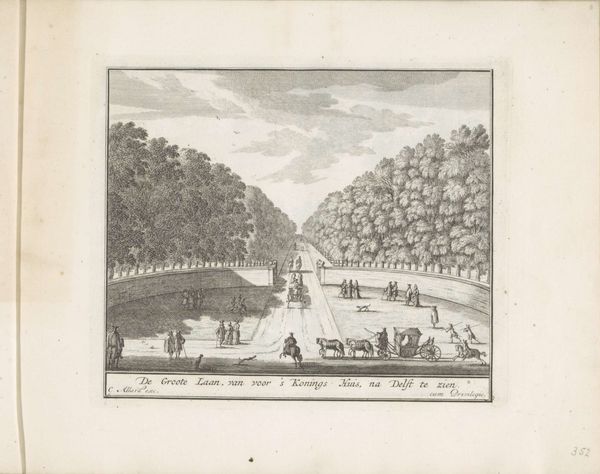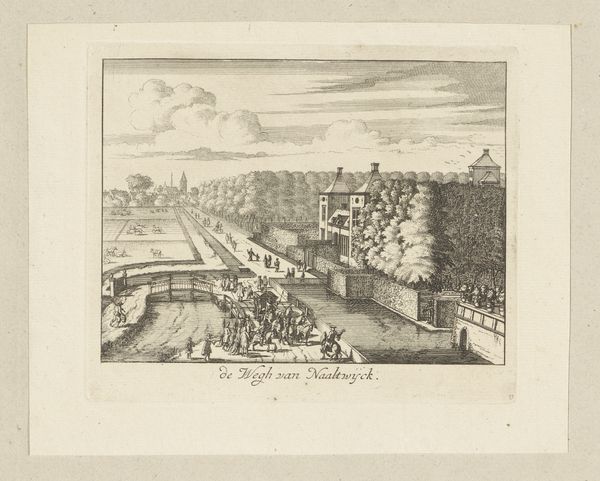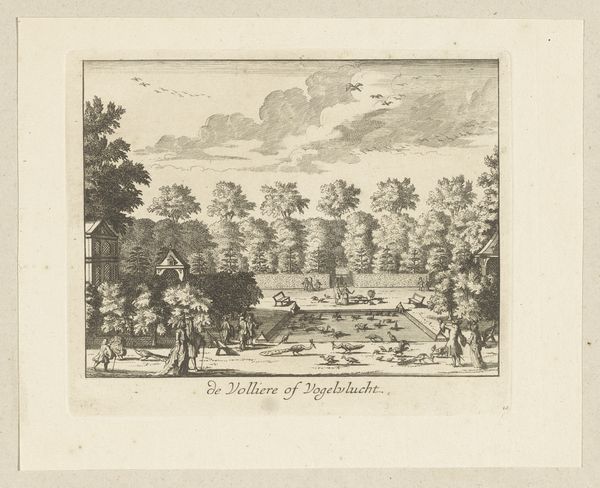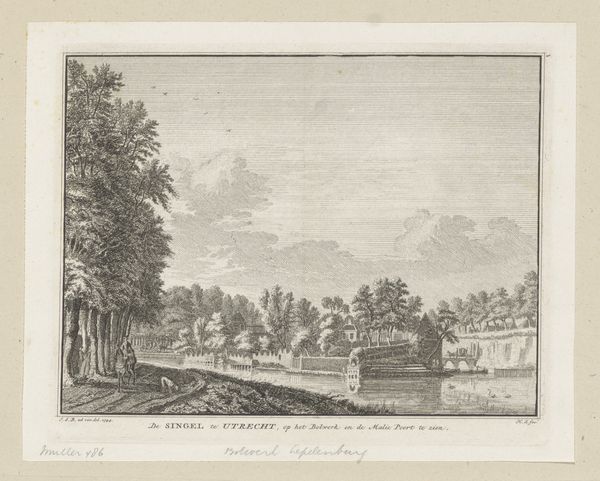
print, etching, engraving
#
dutch-golden-age
# print
#
etching
#
landscape
#
perspective
#
line
#
cityscape
#
engraving
Dimensions: height 171 mm, width 206 mm
Copyright: Rijks Museum: Open Domain
Editor: We’re looking at "Weg tussen Honselaarsdijk en Naaldwijk," or "Road between Honselaarsdijk and Naaldwijk," an etching and engraving by Carel Allard, dating from around 1689 to 1702. It's striking how the rigid lines of the road and waterways are set against the softer forms of the trees and sky. How do you approach a piece like this? Curator: I am drawn to the compositional strategy at play. The artist uses a strong perspectival line to pull the viewer's eye deep into the landscape. Note the interplay between light and shadow. Consider how the precision of the lines contribute to the clarity and the receding town offers depth. Editor: Yes, I see that now. It's almost mathematical in its precision. What's the effect of that precision, would you say? Curator: The rigid structure imposed on nature reflects the Dutch emphasis on order and control during the Golden Age. Semiotically, we could read the linear forms as symbols of human intervention and dominance over the natural world, with semi-organic masses providing just enough to connote "landscape". Editor: It’s fascinating how such simple lines can convey so much control. I initially saw it as just a pretty landscape, but now I see the deeper structure. Curator: Exactly. The apparent simplicity belies a complex and deliberate arrangement of forms. Close visual analysis allows us to appreciate not only what is represented, but how it is represented. This method encourages a careful examination of the artistic decisions made in its construction. Editor: Thank you; I find myself noticing things I wouldn’t have seen before. It goes beyond just seeing to truly understanding how art functions visually.
Comments
No comments
Be the first to comment and join the conversation on the ultimate creative platform.
